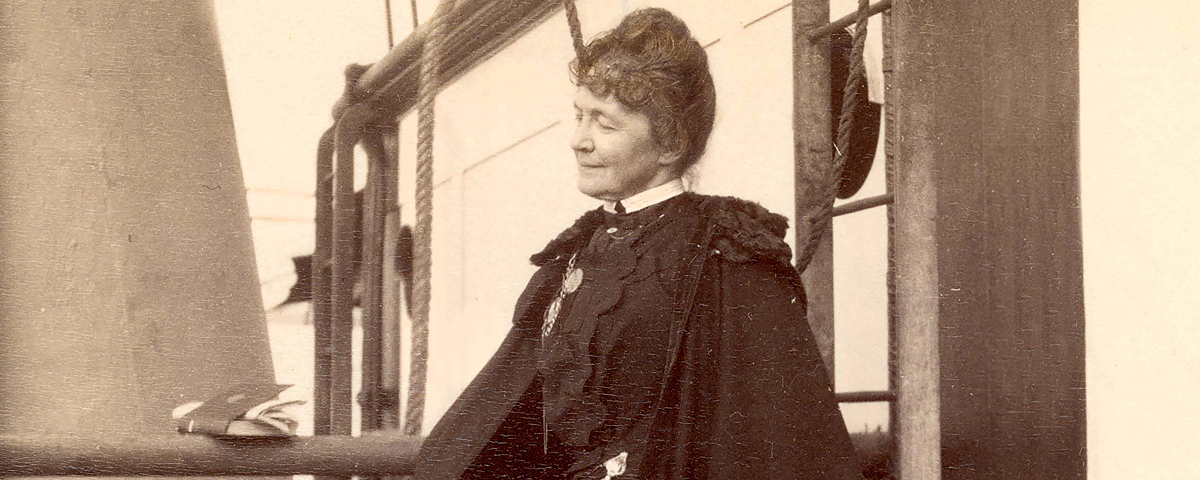Ah, the month of June! The name likely derives from Juno, the Roman goddess of marriage, and June remains the most popular month for weddings. To us at Wild West, though, June means not love but war—namely the Indian wars, in particular the June 1876 Battle of the Little Bighorn in Montana Territory. Accordingly, we offer stories in this issue about Sihasapa Lakota Chief Kill Eagle, who gave an early account of George Custer’s defeat; 7th U.S. Cavalry Private Charles Windolph, who gave a late account (he was with Captain Frederick Benteen’s command and was the last white survivor of the battle); and Frank Huston, who lived among the Lakotas and may have fought alongside them in the battle. Not that we’ve taken all the love out of June. We also take you to Monroe, Michigan, home of George and Elizabeth Custer, who married in that town’s First Presbyterian Church and whose passion for each other is the stuff of adult storybooks as well as history books. We’ve titled the article “Scars of Custer’s Defeat,” because while Libbie clearly loved her golden-haired cavalier, a veil of sorrow descended on Monroe in the aftermath of the decimation of George’s immediate command, which included two brothers, his brother-in-law and a nephew.
Lovebirds George and Elizabeth did not have a June wedding. That social event of the year in Monroe occurred on Feb. 9, 1864. But no matter. As an anonymous poet once wrote, “When February birds do mate, you may wed, nor dread your fate.” Anyway, George figured to be preoccupied in June. Theirs was a Civil War courtship, and there remained fighting to be done (in fact, they curtailed their honeymoon, as George was recalled to the front). He called her Libbie, and she called him Autie. “Theirs was a passionate love, emotionally and sexually,” Custer biographer Jeffry D. Wert wrote in “A Plains Romance,” in the June 2007 Wild West. “Weeks and months of separation, a possible infidelity and bouts of jealousy affected the relationship. But it endured, despite the contemporary allegations and controversies.” George’s death on June 25, 1876, ended their ardent, if not idyllic, marriage of a dozen years. Libbie later wrote, “To lose him would be to close the windows of life that let in the sunshine.” Maybe so, but it was as a widow that she truly shined, overcoming financial problems and spending her last 57 years promoting her lionhearted hero in books and lectures.
Our June issue annually inspires me to re-watch a Custer/Little Bighorn movie. Last year I went with 1970’s satirical Little Big Man, in which Richard Mulligan’s Custer is an arrogant egotist whose battlefield behavior is quite insane. No doubt that film (and the novel of the same name) influenced public perception of the controversial frontier officer. This year I chose 1941’s equally influential They Died With Their Boots On, in which Errol Flynn’s Custer is every bit the dashing hero and enjoys great film chemistry with Olivia de Havilland’s spirited and adoring Libbie. “Errol Flynn’s performance set a standard to which all Custer portrayals are still compared,” wrote Wild West contributor Louis Kraft, whose interest in Custer stems from his first viewing of that movie. “While riddled with inaccuracies—problems pointed out by numerous critics—the film adeptly intertwines Custer’s struggle with the government, his view of American Indians and his love for Libbie.” Flynn’s George delivers this memorable line to de Havilland’s Libbie before going off to fight: “Walking through life with you, ma’am, has been a very gracious thing.” A line dreamed up by a screenwriter for sure, but one the real Libbie would have loved to hear in May 1876 when her man left Fort Abraham Lincoln, Dakota Territory, to do battle in June.
Wild West editor Gregory Lalire wrote the 2014 historical novel Captured: From the Frontier Diary of Infant Danny Duly. His article about baseball in the frontier West won a 2015 Stirrup Award for best article in Roundup, the membership magazine of Western Writers of America.





